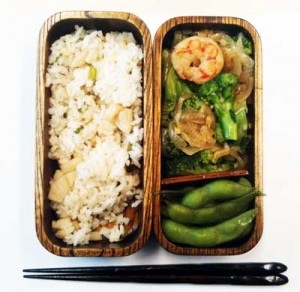This blog is sometimes a bit theoretical, I feel … so here comes some practical suggestion. My understanding of Zen is that it should support our life in all aspects.
I love eating. Since I am fortunately also quite successful at loosing weight without suffering, I am happy to
share my findings: a Zen-talk on diet.
A lot of pain and suffering is caused by overweight. Practising Zazen is just one of the activities which are difficult and potentially dangerous (for the knees and spine) with too much fat on the body. Overweight does not only shorten our lives, it also makes especially the final years much less pleasant and joyful. Since part of my scientific research is related to understanding cardiovascular diseases, I know what I am talking about. Feeling just happy with significant overweight is no plan for life, it is one of the illusions we maybe can get rid of practising Zen.
The best way to loose weight is staying at a Zen temple. I lost 3.5 kg in 7 days this spring in Japan, although I ate a lot, three times a day. A physically active daily schedule, a regular life-style and healthy food work automatically.
The next-best way is applying some science and psychology. So here my basic rules:
- Energy balance: you must burn more energy than you intake by eating and drinking. If the energy balance is negative, you inevitably loose weight, since your body needs to compensate from it’s own savings. 1 kg of body fat are approx. equivalent to 7000 calories. That amount of energy you need to burn more than you eat, in order to reduce 1 kg. Said that, I don’t like counting calories, a “volume control” by using a small bento-box for lunch (see picture) works perfectly fine for me! And preparing a nice and healthy o-bento every day can be very motivating …
- Insulin level: after eating carbon-hydrates, sugar (and maybe even sweeteners, though this is under discussion), the insulin level in the blood rises to help transporting energy into the body cells. In other words: it locks the exit doors to the fat reservoirs you want to burn. I avoid eating “in between”, or drinking sweet stuff (including zero calories diet drinks containing sweeteners), because this pushes the insulin level up, and I cannot efficiently burn my fat for a certain time.
- Moving: moving burns calories, but just a little. Much more “expensive” for your body is being 24 hours prepared for physical activity: filling the reservoirs with energy and providing sufficient muscle power is very expensive. Therefore, regularly moving is an important key factor for a successful diet, far beyond the few calories you burn during the activity itself. And it prevents you from reducing your muscle volume during diet, instead of burning fat.
- Enjoying food: eating too less brings your body into an emergency mode: all functions burning energy go to a minimum, you won’t just feel weak and bad, but also significantly reduce the ability to burn fat. When in spite of a strict diet the weight does not further reduce, this is a clear warning to eat more!
Also, I guess it is important to appreciate and enjoy good and healthy food, which should include it’s preparation. When I am on diet, I spend lots more time with cooking and enjoy eating much more than usual. So a diet is not so much about eating less, but more about food. - Motivation: imagine your life after reducing weight! You’ll be a different person, and most likely much more active and healthy. For motivation, it might help to keep records of what you eat, of your morning weight, it might help to tell others and install some social control, and to visualise the amount of weight you already lost (by buckets filled with water carried upstairs once a day, if you like).
But most important I consider the motivation to actually start developing a focus on (preparing) healthy food, and to enjoy the process of improving your life, not to focus on the final result of a diet. This kind of motivation is not for enduring a horrible time until eventually you lost a few kilos, the process itself of improving your life by new eating habits is the goal!

My today’s lunch. For further inspirations on o-bento
I highly recommend http://justbento.com/
Another story is keeping a low weight, once reached. This is the tough part, it requires changing the whole life-style, permanently. In my case, since it is so easy for me to loose 10 or 20 kg within a few months, I usually simply forget about healthy eating after some time and go back to old habits … no good idea!
What is the link to Zen? you might ask after reading this. Some say, for reducing weight you need a strong will-power, and you must get rid of a scheme in which eating is a compensation for something else missing or going wrong in your life. I don’t know … but for sure regularly practising Zazen will help you with both aspects. In Zen, we try to do the next step right. Prepare the next meal in a suitable and healthy way, and forget about “diet”…
—
WARNING: The above is my personal experience and might very well work for a physically and mentally healthy adult. In case of doubt, before trying yourself better consult a medical doctor or certified diets expert (I am not!). You’ll very likely reduce weight with the above suggestions and enjoy the positive and unexpected side-effects, but you do so on your own risk!
Comments are closed, but trackbacks and pingbacks are open.